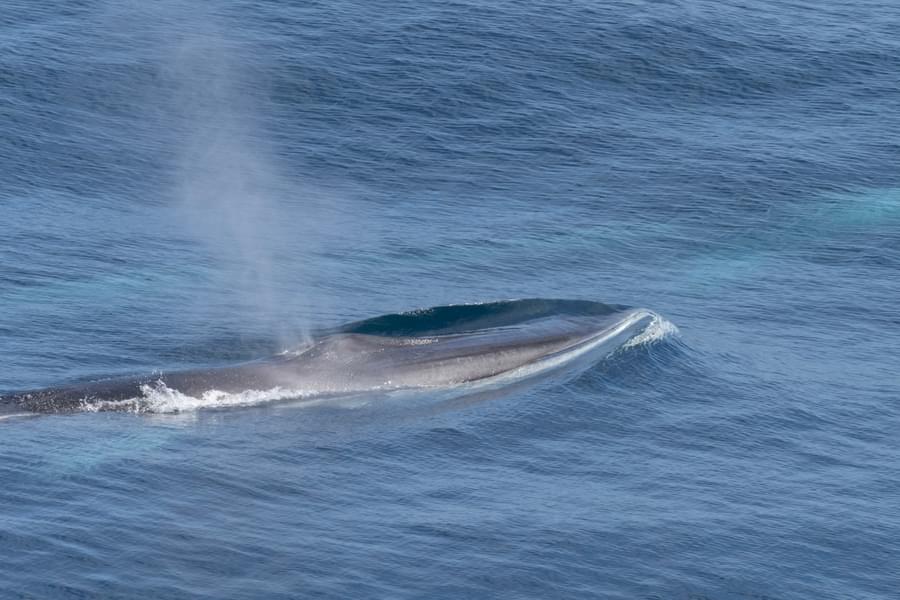The air has a bitter sting, colouring Ocean Conservationists Ellie and Rebecca’s cheeks a salmon pink as they stand on deck 14 of Ambassador’s Ambience. Despite the sub-zero temperatures, guests on board the ship are on a high, heading to their destination of Iceland; and we are all spurred on by the news about a possible end to Icelandic whaling.
Renewed momentum around this barbaric practice has come following a drastic fall in demand for whale meat (with less than 3% of their population in support of whale meat consumption) and a 16-year-long campaign aimed at the main market for whale meat consumption - tourism. Iceland is traditionally a fishing nation, its geothermal rocky landscape hinders the growth of crops, and with less than five percent of Iceland’s population employed in agriculture, the sea is their means of survival. Whaling, therefore, was a traditional practice in Iceland and dates back to as early as the 1200’s; however, modern science has revealed just how intelligent, gentle and enigmatic these creatures actually are, not fearsome, killer sea monsters but actually ecosystem engineers who play a vital role in preserving the biodiversity of the ocean.
Iceland isn’t all to blame. On the contrary, the whole world saw an explosion in industrial whaling beginning in the 1800s as whale oil became a more precious resource than oil or gas. Worldwide, humans slaughtered over three million whales during the 19th century, the largest cull of any animal in human history, having a devastating effect on our ocean systems…
Whales in our oceans act much like cows do on our land. These gigantic animals consume enormous quantities of krill, up to 16 tonnes a day. Once the whale is ready to go to the toilet, they release tonnes of nutrients in their faeces at the water’s surface, including nitrogen and phytoplankton in the ocean. Add a little dash of sunlight, and this phytoplankton (which is essentially the ocean's plant matter) blooms in the millions, not only absorbing carbon and expelling oxygen but providing the foundation of all life in the ocean. Remove the whales, however, and we have less phytoplankton, less carbon storage and oxygen production and also less fish. The health of oceans can be indicated by the presence of whales, which, contrary to recent beliefs, actually increase fish stocks, not decrease them. The 1986 moratorium on commercial whaling enacted by the International Whaling Commission (IWC), halted whaling globally and narrowly saved several whale species from extinction. Despite the global ban, Japan, Norway, and Iceland soon re-continued commercial whaling.
Enter the “Meet us, don’t eat us” campaign! Spearheaded by IFAW and Icewhale to end the practice of whaling, it became one of the country’s most successful petitions, with 175,000 signatories asking people to sign a declaration that they would not eat whale meat. Simultaneously, the whale-watching industry exploded in popularity generating £9m annually for the Icelandic economy. With such a rapid increase in the whale-watching sector, there were concerns over the safety of the whales being bombarded left, right and centre with keen tourists and their cameras. Luckily, whale-watching companies responsibly created a code of conduct, which included agreeing not to make sudden noises, or to pursue animals, as well as to approach animals gradually and not crowd the whales with boats.
So a possible future ban on commercial whaling and the news of Iceland’s booming whale-watching industry is a huge win for whale and dolphin conservation! Iceland is a beautiful country where you can see some of the most amazing whales in the world! But make sure you check your tour operator is using good codes of conduct around the whales before you book!
Happy Whale spotting!
Ocean Conservationists Ellie and Rebecca.

